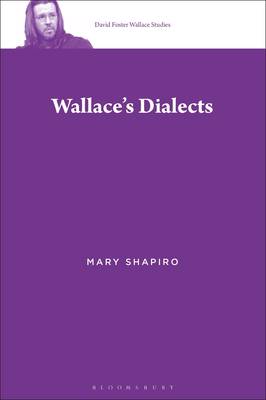
- Retrait gratuit dans votre magasin Club
- 7.000.000 titres dans notre catalogue
- Payer en toute sécurité
- Toujours un magasin près de chez vous
- Retrait gratuit dans votre magasin Club
- 7.000.0000 titres dans notre catalogue
- Payer en toute sécurité
- Toujours un magasin près de chez vous
220,45 €
+ 440 points
Format
Description
Mary Shapiro explores the use of regional and ethnic dialects in the works of David Foster Wallace, not just as a device used to add realism to dialogue, but as a vehicle for important social commentary about the role language plays in our daily lives, how we express personal identity, and how we navigate social relationships.
Wallace's Dialects straddles the fields of linguistic criticism and folk linguistics, considering which linguistic variables of Jewish-American English, African-American English, Midwestern, Southern, and Boston regional dialects were salient enough for Wallace to represent, and how he showed the intersectionality of these with gender and social class. Wallace's own use of language is examined with respect to how it encodes his identity as a white, male, economically privileged Midwesterner, while also foregrounding characteristic and distinctive idiolect features that allowed him to connect to readers across implied social boundaries.Spécifications
Parties prenantes
- Auteur(s) :
- Editeur:
Contenu
- Nombre de pages :
- 240
- Langue:
- Anglais
- Collection :
- Tome:
- n° 3
Caractéristiques
- EAN:
- 9781501348471
- Date de parution :
- 14-05-20
- Format:
- Livre relié
- Format numérique:
- Genaaid
- Dimensions :
- 140 mm x 216 mm
- Poids :
- 412 g

Les avis
Nous publions uniquement les avis qui respectent les conditions requises. Consultez nos conditions pour les avis.






